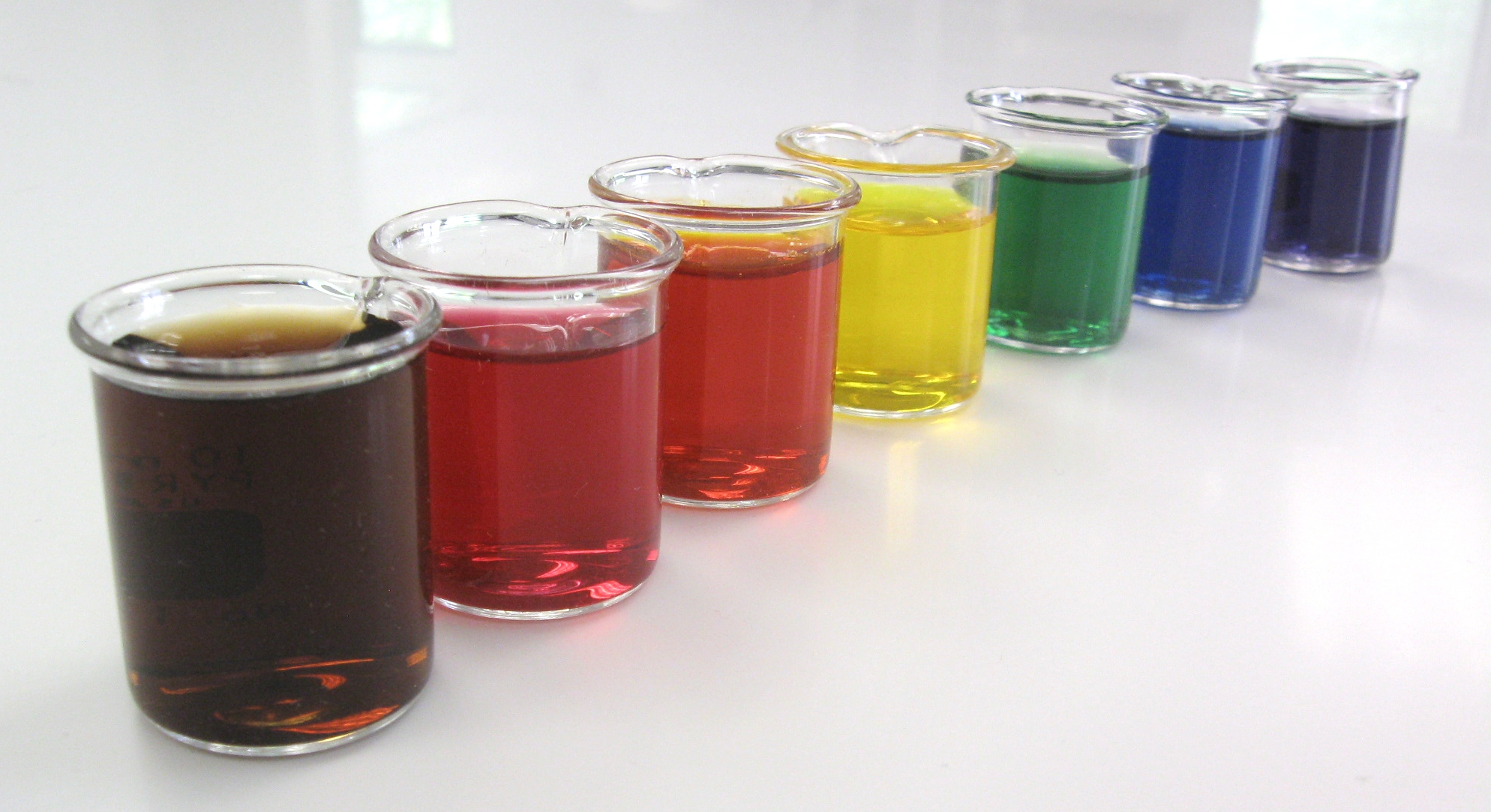|
Detoxification (alternative Medicine)
Detoxification (often shortened to detox and sometimes called body cleansing) is a type of alternative-medicine treatment which aims to rid the body of unspecified "toxins" – substances that proponents claim accumulate in the body over time and have undesirable short-term or long-term effects on individual health. Activities commonly associated with detoxification include dieting, fasting, consuming exclusively or avoiding specific foods (such as fats, carbohydrates, fruits, vegetables, juices, herbs), colon cleansing, chelation therapy, and the removal of dental fillings containing amalgam. Scientists and health organizations have criticized the concept of detoxification for its unsound scientific basis and for the lack of evidence for claims made. The "toxins" usually remain undefined, with little to no evidence of toxic accumulation in the patient. The British organisation Sense About Science has described some detox diets and commercial products as "a waste of time ... [...More Info...] [...Related Items...] OR: [Wikipedia] [Google] [Baidu] |
Naturopathy
Naturopathy, or naturopathic medicine, is a form of alternative medicine. A wide array of pseudoscientific practices branded as "natural", "non-invasive", or promoting "self-healing" are employed by its practitioners, who are known as naturopaths. Difficult to generalize, these treatments range from outright quackery, like homeopathy, to widely accepted practices like certain forms of psychotherapy. The ideology and methods of naturopathy are based on vitalism and folk medicine rather than evidence-based medicine, although practitioners may use techniques supported by evidence. Naturopathic practitioners commonly recommend against following modern medical practices, including but not limited to medical testing, drugs, vaccinations, and surgery. Instead, naturopathic practice relies on unscientific notions, often leading naturopaths to diagnoses and treatments that have no factual merit. Naturopathy is considered by the medical profession to be ineffective and harmful, raisin ... [...More Info...] [...Related Items...] OR: [Wikipedia] [Google] [Baidu] |
Journal Of Clinical Gastroenterology
''Journal of Clinical Gastroenterology'' is a peer reviewed medical journal covering gastroenterology and hepatology, published by Lippincott Williams & Wilkins. It was established in 1979 and the current editor-in-chief is Ronnie Fass, MD (Case Western Reserve University School of Medicine). Abstracting and indexing The journal is abstracted and indexed in: * Science Citation Index * Current Contents/Clinical Medicine * Index Medicus/MEDLINE/PubMed According to the ''Journal Citation Reports'', the journal has a 2013 impact factor The impact factor (IF) or journal impact factor (JIF) of an academic journal is a scientometric index calculated by Clarivate that reflects the yearly mean number of citations of articles published in the last two years in a given journal, as i ... of 3.186. References External links * {{Official website, http://journals.lww.com/jcge/pages/default.aspx Gastroenterology and hepatology journals Lippincott Williams & Wilkins academic journa ... [...More Info...] [...Related Items...] OR: [Wikipedia] [Google] [Baidu] |
WebMD
WebMD is an American corporation known primarily as an online publisher of news and information pertaining to human health and well-being. The site includes information pertaining to drugs. It is one of the top healthcare websites. It was founded in 1998 by internet entrepreneur Jeff Arnold. In early 1999, it was part of a three way merger with Sapient Health Network (SHN) and Direct Medical Knowledge (DMK). SHN began in Portland, Oregon, in 1996 by Jim Kean, Bill Kelly, and Kris Nybakken, who worked together at a CD-ROM publishing firm, Creative Multimedia. Later in 1999, WebMD merged with Healtheon, founded by Netscape Communications founder James H. Clark. Traffic During March 2020, WebMD's network of websites reached more unique visitors each month than any other leading private or government healthcare website, making it the leading health publisher in the United States. In the fourth quarter of 2016, WebMD recorded an average of 179.5 million unique users per month, and ... [...More Info...] [...Related Items...] OR: [Wikipedia] [Google] [Baidu] |
Healthy Diet
A healthy diet is a diet that maintains or improves overall health. A healthy diet provides the body with essential nutrition: fluid, macronutrients such as protein, micronutrients such as vitamins, and adequate fibre and food energy. A healthy diet may contain fruits, vegetables, and whole grains, and may include little to no processed food or sweetened beverages. The requirements for a healthy diet can be met from a variety of plant-based and animal-based foods, although a non-plant source of vitamin B12 is needed for those following a vegan diet. Various nutrition guides are published by medical and governmental institutions to educate individuals on what they should be eating to be healthy. Nutrition facts labels are also mandatory in some countries to allow consumers to choose between foods based on the components relevant to health. Recommendations World Health Organization The World Health Organization (WHO) makes the following five recommendations with respect to b ... [...More Info...] [...Related Items...] OR: [Wikipedia] [Google] [Baidu] |
Dietary Fiber
Dietary fiber (in British English fibre) or roughage is the portion of plant-derived food that cannot be completely broken down by human digestive enzymes. Dietary fibers are diverse in chemical composition, and can be grouped generally by their solubility, viscosity, and fermentability, which affect how fibers are processed in the body. Dietary fiber has two main components: soluble fiber and insoluble fiber, which are components of plant-based foods, such as legumes, whole grains and cereals, vegetables, fruits, and nuts or seeds. A diet high in regular fiber consumption is generally associated with supporting health and lowering the risk of several diseases. Dietary fiber consists of non- starch polysaccharides and other plant components such as cellulose, resistant starch, resistant dextrins, inulin, lignins, chitins (in fungi), pectins, beta-glucans, and oligosaccharides. Food sources of dietary fiber have traditionally been divided according to whether they provide s ... [...More Info...] [...Related Items...] OR: [Wikipedia] [Google] [Baidu] |
Irritation
Irritation, in biology and physiology, is a state of inflammation or painful reaction to allergy or cell-lining damage. A stimulus or agent which induces the state of irritation is an irritant. Irritants are typically thought of as chemical agents (for example phenol and capsaicin) but mechanical, thermal (heat), and radiative stimuli (for example ultraviolet light or ionising radiations) can also be irritants. Irritation also has non-clinical usages referring to bothersome physical or psychological pain or discomfort. Irritation can also be induced by some allergic response due to exposure of some allergens for example contact dermatitis, irritation of mucosal membranes and pruritus. Mucosal membrane is the most common site of irritation because it contains secretory glands that release mucous which attracts the allergens due to its sticky nature. Chronic irritation is a medical term signifying that afflictive health conditions have been present for a while. There are many dis ... [...More Info...] [...Related Items...] OR: [Wikipedia] [Google] [Baidu] |
Processed Food
Convenience food, also called tertiary processed food, is food that is commercially prepared (often through processing) to optimise ease of consumption. Such food is usually ready to eat without further preparation. It may also be easily portable, have a long shelf life, or offer a combination of such convenient traits. Although restaurant meals meet this definition, the term is seldom applied to them. Convenience foods include ready-to-eat dry products, frozen foods such as TV dinners, shelf-stable foods, prepared mixes such as cake mix, and snack foods. Bread, cheese, salted food and other prepared foods have been sold for thousands of years. Other types of food were developed with improvements in food technology. Types of convenience foods can vary by country and geographic region. Some convenience foods have received criticism due to concerns about nutritional content and how their packaging may increase solid waste in landfills. Various methods are used to reduce th ... [...More Info...] [...Related Items...] OR: [Wikipedia] [Google] [Baidu] |
Juice Fasting
Juice fasting, also known as juice cleansing, is a fad diet in which a person consumes only fruit and vegetable juices while abstaining from solid food consumption. It is used for detoxification, an alternative medicine treatment, and is often part of detox diets. The diet can typically last from one to seven days and involve a number of fruits and vegetables and even spices that are not among the juices typically sold or consumed in the average Western diet. The diet is sometimes promoted with implausible and unsubstantiated claims about its health benefits. History Juice fasting became a growing trend in the United States because of Norman W. Walker and Jay Kordich who worked to transform the juice drink into a diet. Walker is considered to be one of the founders of the juice cleanse trend because of his technological contributions to the juicing process and his promotions of a raw food diet. In 1936, Walker created the designs for the first mechanical juicer that he named ... [...More Info...] [...Related Items...] OR: [Wikipedia] [Google] [Baidu] |
Nutritional Deficiency
Malnutrition occurs when an organism gets too few or too many nutrients, resulting in health problems. Specifically, it is "a deficiency, excess, or imbalance of energy, protein and other nutrients" which adversely affects the body's tissues and form. Malnutrition is not receiving the correct amount of nutrition. Malnutrition is increasing in children under the age of five due to providers who cannot afford or do not have access to adequate nutrition. Malnutrition is a category of diseases that includes undernutrition and overnutrition. Undernutrition is a lack of nutrients, which can result in stunted growth, wasting, and underweight. A surplus of nutrients causes overnutrition, which can result in obesity. In some developing countries, overnutrition in the form of obesity is beginning to appear within the same communities as undernutrition. Most clinical studies use the term 'malnutrition' to refer to undernutrition. However, the use of 'malnutrition' instead of 'undernutrit ... [...More Info...] [...Related Items...] OR: [Wikipedia] [Google] [Baidu] |
Preservative
A preservative is a substance or a chemical that is added to products such as food products, beverages, pharmaceutical drugs, paints, biological samples, cosmetics, wood, and many other products to prevent decomposition by microbial growth or by undesirable chemical changes. In general, preservation is implemented in two modes, chemical and physical. Chemical preservation entails adding chemical compounds to the product. Physical preservation entails processes such as refrigeration or drying.Erich Lück and Gert-Wolfhard von Rymon Lipinski "Foods, 3. Food Additives" in ''Ullmann's Encyclopedia of Industrial Chemistry'', 2002, Wiley-VCH, Weinheim. Preservative food additives reduce the risk of foodborne infections, decrease microbial spoilage, and preserve fresh attributes and nutritional quality. Some physical techniques for food preservation include dehydration, UV-C radiation, freeze-drying, and refrigeration. Chemical preservation and physical preservation techniques are som ... [...More Info...] [...Related Items...] OR: [Wikipedia] [Google] [Baidu] |
Pesticide
Pesticides are substances that are meant to control pests. This includes herbicide, insecticide, nematicide, molluscicide, piscicide, avicide, rodenticide, bactericide, insect repellent, animal repellent, microbicide, fungicide, and lampricide. The most common of these are herbicides which account for approximately 80% of all pesticide use. Most pesticides are intended to serve as plant protection products (also known as crop protection products), which in general, protect plants from weeds, fungi, or insects. As an example, the fungus ''Alternaria solani'' is used to combat the aquatic weed ''Salvinia''. In general, a pesticide is a chemical (such as carbamate) or biological agent (such as a virus, bacterium, or fungus) that deters, incapacitates, kills, or otherwise discourages pests. Target pests can include insects, plant pathogens, weeds, molluscs, birds, mammals, fish, nematodes (roundworms), and microbes that destroy property, cause nuisance, or spread disease, or a ... [...More Info...] [...Related Items...] OR: [Wikipedia] [Google] [Baidu] |
Food Coloring
Food coloring, or color additive, is any dye, pigment, or substance that imparts color when it is added to food or drink. They come in many forms consisting of liquids, powders, gels, and pastes. Food coloring is used in both commercial food production and domestic cooking. Food colorants are also used in a variety of non-food applications, including cosmetics, pharmaceuticals, home craft projects, and medical devices. Purpose of food coloring People associate certain colors with certain flavors, and the color of food can influence the perceived flavor in anything from candy to wine. Sometimes, the aim is to simulate a color that is perceived by the consumer as natural, such as adding red coloring to glacé cherries (which would otherwise be beige), but sometimes it is for effect, like the green ketchup that Heinz launched in 2000. Color additives are used in foods for many reasons including: * To make food more attractive, appealing, appetizing, and informative * Offset c ... [...More Info...] [...Related Items...] OR: [Wikipedia] [Google] [Baidu] |






